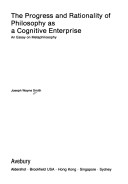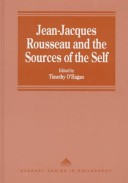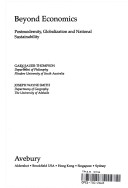Avebury Series in Philosophy
6 total works
The Progress and Rationality of Philosophy as a Cognitive Enterprise
by Joseph Wayne Smith
Published 14 January 1988
The Unreasonable Silence of the World
by Gary Sauer-Thompson and Joseph Wayne Smith
Published 4 December 1997
This text aims to develop a postmodernist critique of philosophy - although not the postmodernism of literary philosophers such as Derrida. This postmodernism is one of ecological limitationism coupled with a practical commonsense "realism". The authors affirm the reality of the life-world and the primacy of practice against materialist, physicist and reductionists. They attempt to show that orthodox Anglo-American analytic philosophy is not merely incapable of completing its own quest to supply a regionally justified system of reality, but, more importantly, it fails as well to meet the challenges of the age.
In this book, the author distinguishes two broad metaphysical world views: the technocratic and the pernetarian, or the technocentric and the ecocentric paradigms. His aim in this book is to present a case against the technocratic/technocentric paradigm, as well as to inform Australian, European, American and Asian readers about the multifunction polis and the larger crisis in Australian society. Japanese technocracy, which is to be implemented increasingly in Australia, is, according to the author, Orwellian in the extent of its oppression and control, where the political process is degraded into a form of scientific management of public opinion. He predicts that the social, cultural and economic pain felt acutely by Australians will soon radiate to engulf the rest of the world.
This work summarizes an already comprehensive field of criticisms of received economics and advanced new ones, particularly with respect to free trade and the industrialisation of economic systems. If global economic and ecological catastrophe is to be avoided, nations and communities must move towards greater self-reliance within the framework of a much less resource-wasteful existence. But to do this will require not merely a cosmetic change in the present socio-economic system, but a change of such magnitude that it dwarfs previous social transformations in human history. This great transformation must occur by conscious human activity and it must occur quickly if human civilizations, and indeed human life itself, is to continue.
Globalization, Knowledge, Citizenship, Power
by Gary Sauer-Thompson and Joseph Wayne Smith
Published 30 July 2007
The authors of this work begin from the premise tht the neo-liberal reforms of the liberal university in Australia have left the institution in ruins as lean, mean entrepreneurial corporations concerned with money-making and prestige in a global information industry. The humanities are being downsized as research money and resources are directed by a New Class of managerialist administrators to ensure wealth creation by fostering techno-science and subsidizing high-tech industry. They argue that this is a disaster for philosophers, with fundamental research atrophying, the capacity for humanitites research and scholarship reduced to Third World status and public intellectuals contesting the neo-liberal mode of governance nowhere to be seen in the public eye. The work argues that it is possible for downsized critical intellectuals to find spaces amidst these ruins to work for a critical university that would help them to re-skill as public intellectuals.
Philosophy can contribute to this rethinking of the humanities, by drawing on its ancient heritage of a Socratic philosophy in the city, to develop an ethical philosophy in the city that writes for an eduated audience about the burning issues of everyday life. The authors assert that such a Socratic philosophy should take an oppositional stance to neo-classical economics and aim to keep the public conversation going about the destructive impact of the global market. The renewal of philosophy is developed by recovering a republican political philosophy that links education to citizenship and the good life in a free republic to defend ecologically sustainable ways of life of citizens in regional communities.
Philosophy can contribute to this rethinking of the humanities, by drawing on its ancient heritage of a Socratic philosophy in the city, to develop an ethical philosophy in the city that writes for an eduated audience about the burning issues of everyday life. The authors assert that such a Socratic philosophy should take an oppositional stance to neo-classical economics and aim to keep the public conversation going about the destructive impact of the global market. The renewal of philosophy is developed by recovering a republican political philosophy that links education to citizenship and the good life in a free republic to defend ecologically sustainable ways of life of citizens in regional communities.



